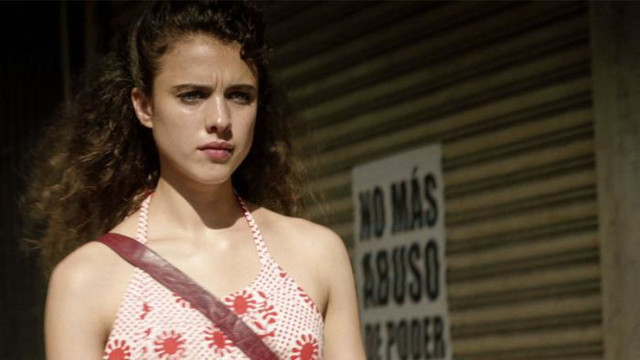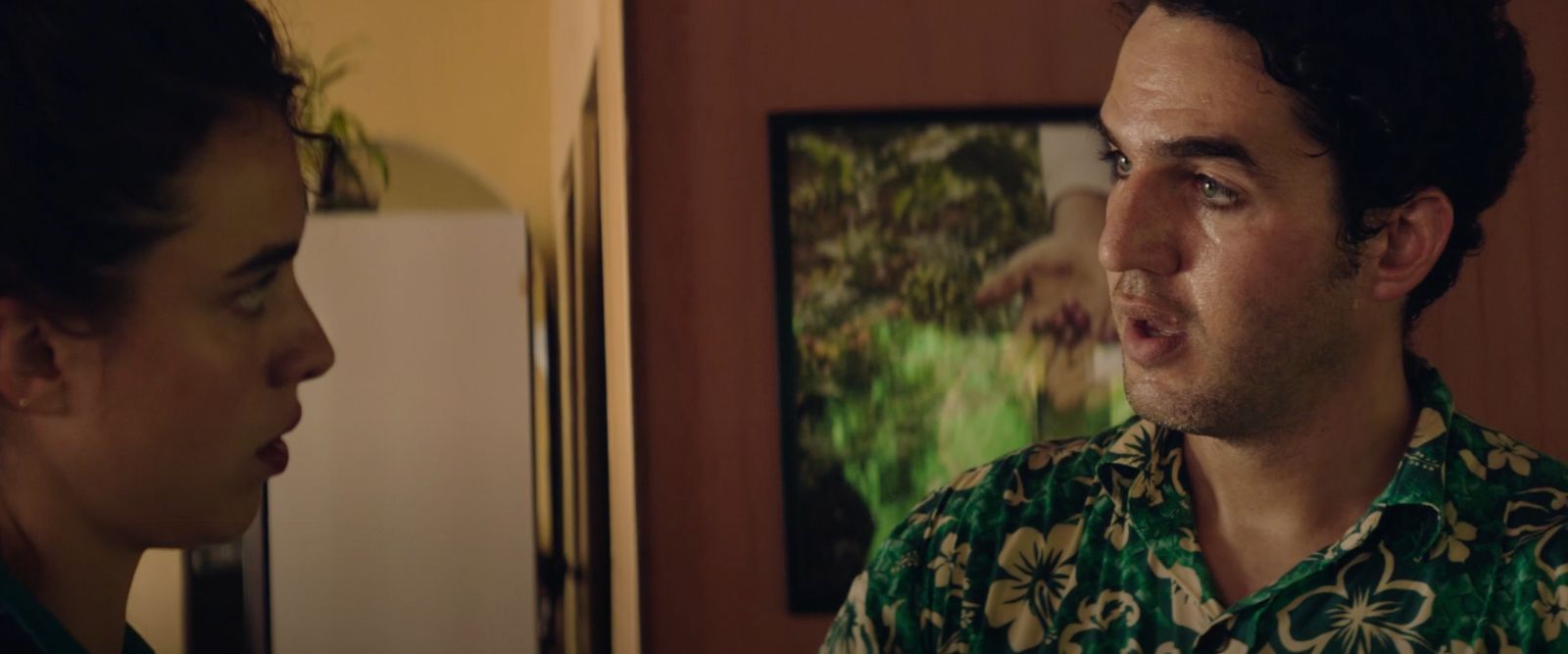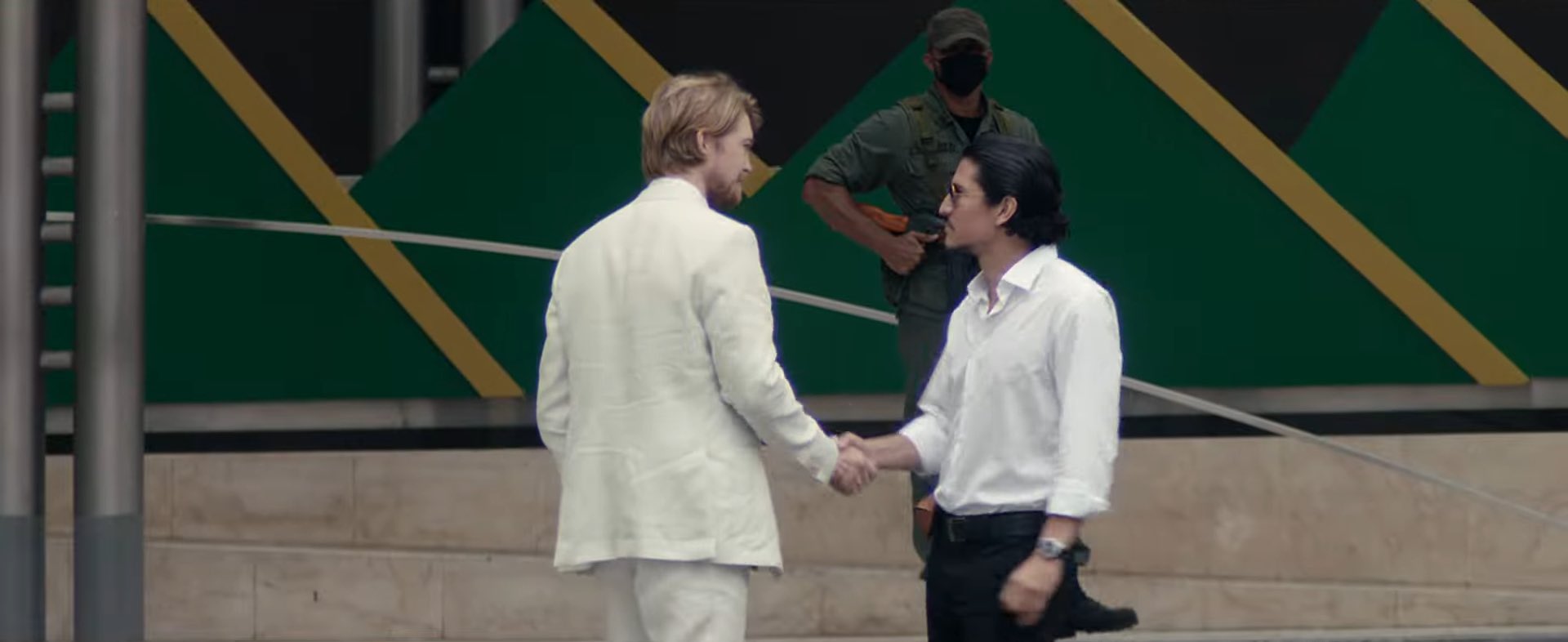There’s an argument to be made, especially with filmmakers of a certain calibre, for throwing your audience into a narrative that lacks the traditional expository support structures and letting them sink or swim. If the viewer does swim to the surface and fully orient themselves in the story, the hope is that they’ll richly appreciate the details the filmmaker spent their time on rather than making story points abundantly clear. What’s more, the filmmaker’s trust in them should flatter their intellectual capacity to enter a world without being spoon-fed its core parameters.

That sort of thing is an unattainable ideal in Claire Denis’ Stars at Noon, the latest film to confirm that the voters at Cannes are frequently seeking different things from a film than most of the rest of us. Denis has always been the sort of filmmaker to employ these tactics, enigmatic even in her clearest moments, and it’s usually something you either accept or fail to accept about her work, either strengthening your affection for her or prompting you to spend your time elsewhere. In her Cannes 2022 Grand Prix winner, though, Denis doesn’t bolster this polarising technique with the sorts of character interactions or isolated moments of inherent interest that would make believers out of her doubters.
Stars at Noon is Denis’ second feature (primarily) in English, though it’s not set either in her native France or in the English-speaking world. The story is a pandemic-era adaptation of Denis Johnson’s 1986 novel, set in Nicaragua and featuring an American travel writer named Trish (Margaret Qualley), whose stories critical of the local government have gotten her passport revoked and put her at odds with the man who has been reluctantly willing to pay for and publish her escapades (John C. Reilly, in a cameo over Zoom). The evidence suggests she’s not very good at her job, or in any case, maybe a grifter of sorts. What’s definitely true is that she’s taken to prostituting herself to get by while living in a flophouse.
In a hotel encircled by men with machine guns, that serves as something of a refuge for foreigners, Trish meets a Brit named Daniel (Joe Alwyn, known to many of us as Taylor Swift’s boyfriend). He starts out as the standard user of Trish’s services, but the two quickly develop a bond that feels more like love, even though he’s got a wife and children at home. He also may not be who he says he is. Daniel describes himself as a petrochemicals consultant, but a Costa Rican police officer (Danny Ramirez) and American CIA agent (Benny Safdie) both show an interest in detaining him, or worse.
I might traditionally delve into a third paragraph of plot synopsis, but the film’s lack of action doesn’t warrant it, nor could I do so without the assistance of Wikipedia. It’s not that Denis sets out intentionally to confuse us with a plot that is intricate and relentless, or deliver us a dose of artful opaqueness; it’s that we can’t follow what’s happening even when nothing much is happening. It’s a peculiar sort of failure that erodes our investment early, and Denis does nothing to win that investment back.
Sustaining our interest should be on the shoulders of the stars, but they are not capable. Joe Alwyn is obviously a stand-in for Robert Pattinson, Pattinson having starred in Denis’ first English-language film, the space odyssey High Life. (When you consider that Pattinson also starred in the Safdie brothers’ Good Time, and Benny Safdie appears as an actor here, it completes an interesting little triumvirate between the three.) Alwyn certainly deserves to be appreciated in a context outside of his relationship to Taylor Swift, but he’s a very mild presence who doesn’t have anything on Pattinson’s charisma. As if to inject life into Alwyn’s sluggish performance, Qualley goes the other way, showcasing too many of the spasmodic tics we’ve seen from her mother, Andie MacDowell. Together they have no chemistry. (Incidentally, anyone who’s seen Barb and Star Go to Vista Del Mar won’t be able to hear the name Trish without sniggering a bit.)
The film also has a COVID-19 problem that’s not its fault. A big difference between this year’s and last year’s movies is that last year’s movies were welcome to grapple with all the traditional COVID-19 signifiers, such as social distancing, mask wearing, that sort of thing. The movies that came out in 2021 that dealt with these issues felt vital. Now that we’ve turned the corner in the pandemic, watching people take masks on and off in movies feels like yesterday’s news – like the movie is as old as Denis Johnson’s original source novel. Whether that should be the case or not, it is.
Then there’s the issue that Central American political intrigue has a natural barrier to entry that this film has trouble overcoming. Since the film does not work very hard to establish which men with guns are on which sides, it leaves us generally uncertain about why any of them have guns and whether we’re supposed to engage with that part of the story or just consider it window dressing, much like most of the COVID-19 stuff. It’s credible window dressing, and many an interesting independent film has been set in poor countries rocked by political instability. But then those movies also have a central relationship we can dig our teeth into.
There’s not a lot to bite in Stars at Noon. In attempting to create a sort of sustained romantic languor, it languishes. It’s possible to watch this film and appreciate that Denis has obvious gifts and should be taken seriously each time she releases a film. Given that she is 76 years old, health or simple retirement could put that to a stop at any old time. It does not mean, however, that she should be given a pass when she makes a film that just doesn’t work – even if a panel at Cannes thinks otherwise.
Stars at Noon is currently playing in cinemas.

